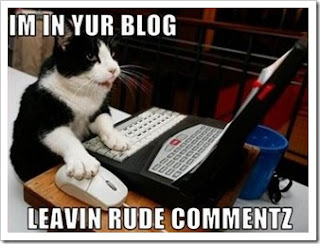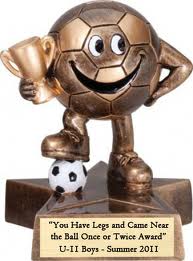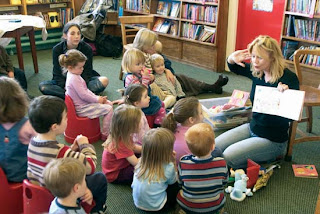After a lifelong affair with storytelling, becoming a professional
storyteller was one of the highlights of my librarian career. At the time, I
naively thought that being good at my craft (as I was told I was) meant I could
put my stories on paper and instantly become a novelist. Think again! There is a huge
difference between writing and storytelling. As the cliché goes, writers are made,
storytellers are born. But like Yours Truly, you may be a fantastic tale-spinner
and yet lack all the skills that makes a good novelist.
Family lore
asserts that I was involved in storytelling way before I learn how to read. I
used to memorize fairytales and then create my own version which I would retell
to family, servants, pets and whatever captive audience I could get hold off.
It was a form of oral fanfiction. As I grew old, my storytelling experiences went
underground, until I found myself in Library School.
There I
learned that storytelling was a crucial skill for good Children’s Librarians. There I heard about the great Augusta Braxton
Baker and other pioneer storytellers/librarians. I also got to meet and watch
real storytellers performing their magic. One of the landmarks of those wonderful years
was a chance to do library programs in which I polished my old art and went
through marvelous experiences that plied me with anecdotes to dine on for
decades.
 |
| Augusta Braxton Baker |
Technique vs. Drama
Encouraged
by my storytelling success, I decided that I had the skills to become a true
novelist. This crass mistake derived from my confusion between the terms “storytelling”
and “story writing.” The first is all about voice, words, atmosphere, vigorous
action, drama and wonder. The second is all about method, prose, rules and
in-depth characterization.
Popular
commercial writers like to think of themselves as “storytellers,” consequently they
rely more on dynamic action and dramatic mood than on literary technique. Their
lack of fine writing skills is what their foes will bring up when attacking
their work. On the other hand, think of Henry James’s novels, very little happens
in them, but you can’t deny his masterful prose or his powerful characters.
The
majority of fairy tales were originally found within storytellers repertoires.
But when early folklorists shuffled those narratives from the oral realm to a written
page, the tales underwent drastic modifications. Early versions of well known tales
contained disturbing elements such as Sleeping Beauty being raped by the prince
or Rapunzel having twins out of wedlock (something they forgot in the
Disneysque version called “Tangled”.) Language had to be cleaned up and the
whole text had to undergo a refining process. Each story found that
transcription to paper meant to be bound by literary technique and conventions.
 |
| No twins for this Rapunzel! |
Rules vs. Spontaneity
Storytelling
is linked to an old traditional activity known as oral narrative. It goes back
to cavemen telling tales around the camp fire. Most cultures will have some form
of traditional storyteller, from the Irish “seancaid” to the Jewish “maggid.”
In the past, storytellers have been seen as shamans, healers, keepers of
tradition, even as intermediaries between the sacred and the profane. Such is
the strength that comes from spinning a tale.
Telling a
story, even to an adult audience, is a dynamic-spontaneous activity. You can’t
go back to polish a draft or edit mistakes. What comes from your mouth is what
your audience gets. It’s like acting in a play, if you goof you get booed. If
you forget your character name, or skip a major moment, your audience will know
and will let you know. And worse than being pelted with tomatoes, like actors
of old did, is to lose your listeners’ attention. It is the equivalent of losing
their respect.
You have to
prepare in advance for predictable disasters. So you said “Princess Alice”
instead of “Princess Alexandra”? Then you quickly explain that Alice is
Alexandra’s evil twin who, in fact, is working wit Dark Forces to take over her
sister’s throne. I know it sounds far-fetched, but believe me, it does work.
I have tried it. Did I say the storyteller is an actor? A stand up comedian might
be a better description.

Is your audience yawning and staring at the clock? Wake them up with some
unexpected plot twist. In Romana, the
Jewish-Italian version of Snow White,
the heroine does not find shelter with benevolent dwarves; she ends up at the
lair of seven ruthless thieves! I often imagine this twist must have come about
as a desperate storyteller attempted to get his audience’s attention back with
a “Hey, guess what? Romana has just been caught by the most dangerous gang in the
entire Italian peninsula. Yes, seven hardened criminals, and there she is, hanging
from a tree branch, wondering if she should climb down and take her chances with
these strapping lusty outlaws.”
 |
| Darth Vader and Son |
You may
think this only works in front of a live audience, but surprise twists are
useful in all forms of storytelling, especially in book or film series that
have dragged too long and are reaching the point where the reader’s patience is
wearing thin. Who would have imagined that Darth Vader would turn out to be
Luke Skywalker’s father? It was the most unforeseen moment of the Star War Saga
and left us waiting breathlessly for “The Return of the Jedi.” Stephanie Meyer was aware that half her
fandom wouldn’t be happier with Bella choosing to be Vampire Bride instead of
the Wolf Man’s Wife. Her solution was to turn Jacob into Bella’s future
son-in-law and leave her readers pondering about the possible incoming “Reneesme’s
Adventures in Lycanthropy.”
Followers of
George R.R. Martin’s Song of Ice and Fire
were a bit confused after Clash of Kings,
the second book of the series. Not only was it more slow-paced than the
previous Game of Thrones, but Martin’s surprising killing of the apparent
protagonist had left his devotees treading on thin ice. The only thing they
were certain was that the one great villain of the story was Ser Jaime
Lannister. How else could one describe a man who had backstabbed his king,
impregnated his much-married Queen (who also was his twin sister), ambushed
good Ned Stark in the street, and threw children off ramparts?
Well, in Storm of Swords, the third book in the
saga, Martin did the unthinkable: he presented Jaime as a victim. By turning
him into a POV character, the author granted him a chance to tell his side of
past events, baffling those who thought him a monster. That changed the
viewer’s perception of the character forever, transformed the Kingslayer into a
sort of heroic figure, and made Storm of
Swords the most read, discussed and loved book of the entire saga.
 |
| Ser Jaime Lannister from Kingslayer to tragic hero |
Archetypes
vs. Well-Developed Characters
But
storytelling is not totally devoid of pitfalls, one of them is lack of time and
space to develop multifaceted characters. Thus, storytelling has to rely on
archetypes: The Charming Prince, Cinderella, talking animals, and others that
just by mentioning their name have the spectators imagining looks and
personalities. When telling a tale in front of a live audience you don’t have the
time to give a complete biography or a full physical description therefore you
to have to simplify. One of my tales started like this, “Miguelito was a very
poor mouse. So poor was he that his pants lacked pockets because he lacked
loose change.” Obviously, if I was writing the tale I would submit to the “show
not tell” clause, and never mention the word “poor.” In storytelling you just
have to.

When Isabel
Allende published The House of the
Spirits, critics pounced on her accusing my countrywoman of creating a bad
copy of Gabriel Garcia Marquez’s One Hundred
Years of Solitude. Indeed, her book owed plenty to Garcia Marquez’s masterpiece, but Allende imbued enough political ideology and her own family
lore into the novel to establish a distance. Moreover, she had one advantage
over the Colombian author, she had well-developed characters.
This may
sound like anathema. Don Gabo is a literary giant, nobody surpasses him in
telling stories, describing imaginary worlds, and creating a family tree
spotted with intrigue and domestic drama, but his larger-than-life characters
are iconic images, never flesh and blood personages. Look at his fictional
women. We know that his many Renatas, Remedios and Amarantas fall in and out of
love, get pregnant by the wrong man and die in childbirth, but do we know what
they think? What they like to do in
their spare time?
Garcia Marquez is a terrific storyteller and
as such he relies on characters that are a combination of mythical figures and
anecdotes. He could stand in front of a crowded theater and verbally convey his
novel because it belongs to an oral storytelling tradition. Unlike him, Isabel
Allende’s characters are too complex and experience too much interior drama to
be put into five words. There is no way to explain briefly about mystical
Clara, forced by fate to marry a man that belonged to her dead sister. And how
would you verbally express the horror, pain, and humiliation of Alba as she goes
through physical torture?
 |
| Meryl Streep as Clara in "The House of the Spirits" |
If I had to
take one book with me to a desert island, I would pick The Holy Bible. Aside
from its spiritual content, it’s the best storytelling I have ever laid eyes
upon. Within its covers you find everything: political trickery, supernatural
events, domestic squabbles, war epics, romance and lust. We love biblical stories
and their protagonists have become household names, but do we see them as
real-life characters? Do we get to know their point of view? We know King David
liked women and played the harp, but what was his favorite food? We
know Sarah hated her husband’s concubine Hagar, but do we know if Hagar hated
her back? Do we know if Hagar was happy with Abraham?
Every
March, Orthodox Jews are subject to one great story hour. The reading of Megillat Esther (The Book of Esther) is the highlight of the Purim Holiday. The
synagogue becomes a big storytelling room. All gather to hear the rag-to-riches
story of Esther, a nice Jewish girl who is taken away from her home, and after
winning a harem beauty contest, becomes Queen of Persia. I love to hear how even
after marrying the most powerful man in the land, Esther is still subject to
palace intrigues, has to hide her Jewish identity, and strives to save her
people from evil Haman.

The story
ends in a colossal triumph after Esther manages to save Persia, the Jews and
herself through cunning and courage. It’s Cinderella meets Joan of Arc, but do
we know Esther? Do we know how she felt about her king-husband? Is she home-sick? Where did she learn to play
bedroom politics and how she went about it? Knowing the answer to all those
questions would make The Book of Esther
a terrific novel, but it would probably take two days to read it in the temple.
Even the most pious audience would be snoring before the reading was over.
Continuity vs. "The End" word
Whenever we
think of the term “storyteller,” the name “Sherezade” comes to mind. Wrapped in
her veils, the protagonist-narrator of the Arabian Nights is the teller of
stories par excellence. She alone
performed the prowess of spending a hundred-thousand-and one nights weaving
stories to charm a king out of his psychotic misogyny. What is so compelling about
her feat is the impression that Sherezade spends every hour of her existence at
her craft, that her entire life is linked to the continuous act of
fable-spinning. It’s only by the end of the book, after it’s disclosed that she has delivered two sons for the Sultan,
that we realize that a lot more went on in
that bedchamber than just telling tales.
 |
| María Montez as Sherezade |
Sherezade exemplifies
one of the greatest joys of storytelling, its continuity. Unlike novel writing
that is bound to arrive to the word “The End,” a tale could go on forever. A
storyteller could call it a day just to retake the narrative thread the following
day, or night like Sherezade did. A novelist can give up on his craft, never
write another book, a great novel may never have a sequel, but storytelling is endless.
You have cycles of tales connected to one single protagonist like Anansi, the
Spider or Stupid Jack. That is what written series and storytelling have in common,
the infinite possibilities.
Agnes
Newton Keith was an American bestselling writer that wound up experiencing
stranger than fiction events. In 1942, she and her small son were taken into
captivity by the Japanese. For the next three years, she lived in a civilian prisoner
camp, away from her husband and enduring privations, malnutrition, slave work,
plus physical torture and a rape attempt. Throughout her captivity, her utmost
preoccupation was the survival and well-being of George, her little boy. One
way she found to keep up George’s morale was an evening storytelling session
that centered on the exploits of a super hero known as Big Game Hunter “Keith
of Borneo” (later joined by “Jack, the Giant-Killer”.)
 |
| Birthday card , Agnes Newton Keith sent to her husband while still in captivity |
One night
she realized that other children in her compound had gathered around her
mosquito net to hear her story. At first, Mrs. Keith wanted to yell that this
was only for George, but finally she gave in. Her daily story session became a
source of pleasure and comfort for the youngsters in captivity and a way to
maintain her narrative skills. She stretched Keith’s adventures as far as
credibility could allow, sent him on trips around the world, personalized the
stories and in every way proved the power of storytelling and the capacity for
a tale to continue ad infinitum.
The Interactive Storyteller vs. The Writer in
the Ivory Tower
Mrs.
Keith’s anecdote illustrates another advantage that storytelling has over story
writing: you get to know your audience. When we write our first bit of fiction,
we write it mostly for ourselves. We are the target audience and we grow
attached to that piece because we like it. Then we expose it to the criticism
of family and friends. We start modifying
our text to suit the audience’s needs, a process that expands as we move from
acquaintances to agents and publishers. We are always running into new more
demanding readers, while in the horizon looms the threat of the “real public,” a
terrifying but foreign group.
In
storytelling you have no such problems. Even if you may be awed at the
prospect of meeting listeners for the first time, you’d have plenty of data on them.
You will know their sexes, occupations and ages. Novelists have three abstract
age groups to choose their target audience from: children, young adult or
adults. In storytelling, age groups tend to be more specific.
My first
story session brochures explicitly said “toddlers and pre-schoolers” and my
audience were Latinos. My second storyteller job was with elementary school
children and it was done in English. Even when dealing with adults, knowing in
advance that you will be addressing senior citizens, middle-aged housewives, or
teenage boarding school students helps you prepare tales, props and mood.
When your
book hits the market you don’t know who will be buying or reading it. Whether
it comes from New York Times reviewers or by readers complaining on the Amazon
boards, reactions to or interpretations of a novel may shock its author. The
storyteller gets to face the reaction immediately and has a chance to discuss the
interpretation or even change it, because storytelling is always an interactive
activity. So interactive that in some cultures the listeners actually interrupt
the session with questions and even offer suggestions to improve the
storytelling.

There is tremendous
power in storytelling for narrator and public alike. When my mother saw the snapshots
of my first story hour she was more impressed by the children’s expressions
than by her daughter’s antics. “Look at their little gaping mouths!” she said.
I know what it’s like to captivate an audience as well as I know what it feels to
be enthralled by a fine storytelling session, or by a book that fulfills my
emotional needs or by a television show that grips my attention while bringing
comfort to my exhausted mind.
Modern
authors tend to forget and forsake the pleasure of interacting. They cherish
(sometimes with good reason) the distance that separates them from audience. A
true storyteller would never sacrifice his chance to know the feedback of
listeners/readers and would find a way to recognize and meet their needs.
Can you think of a novelist, or scriptwriter
who combines the quality of fine fiction writing with strong storytelling
skills?




































